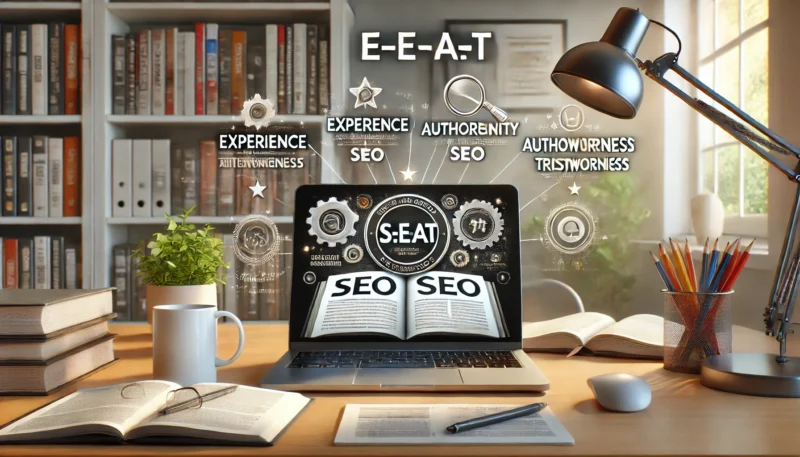If you want your content to rank well in Google in 2025, understanding and applying E-E-A-T is absolutely essential. This acronym, introduced and updated by Google as part of its Search Quality Evaluator Guidelines, stands for:
Experience, Expertise, Authoritativeness, and Trustworthiness
But what does each of these actually mean? And how can you apply them to your content in a way that improves your rankings and credibility?
Let’s break it down and explore practical ways to incorporate E-E-A-T into your SEO strategy.
What Is E-E-A-T?
E-E-A-T is a framework used by Google to evaluate the quality of content. It’s not a direct ranking factor like page speed or mobile friendliness, but it influences how Google perceives your site, which affects your visibility in search results.
Here’s what each letter means:
🧠 Experience
This refers to the first-hand experience the content creator has with the topic. For example, if someone writes a review of a product they’ve never used, it shows — and Google knows it.
Example: A blogger writing about digital marketing tools who actually uses those tools will provide more valuable insights than someone summarizing content from other websites.
🎓 Expertise
This is about the depth of knowledge a content creator has in a specific subject. It’s especially important for “Your Money or Your Life” (YMYL) topics like health, finance, and legal advice.
Tip: Demonstrate your expertise by backing claims with data, providing detailed insights, and showcasing credentials if you have them.
🏛️ Authoritativeness
Authority refers to how recognized and respected you or your website are in your field. Are others referencing your content? Do you have guest posts, citations, or media mentions?
Pro Tip: Building backlinks from reputable sources and earning social proof (like testimonials or case studies) strengthens your authority.
🔐 Trustworthiness
This is the most important of all. Can users trust your site? Is your content honest, accurate, and transparent? Does your site look safe and professional?
Trust comes from a combination of good design, secure connections (HTTPS), clear policies, and honest content.
Why E-E-A-T Matters for SEO in 2025
Google wants to serve users content that is accurate, reliable, and helpful — especially for topics that can impact people’s lives. If your content lacks E-E-A-T, it may be demoted in rankings, even if it’s optimized with keywords.
E-E-A-T is especially important for:
-
Health and wellness blogs
-
Financial advice sites
-
Legal or government-related content
-
eCommerce stores
-
Review and comparison articles
-
Educational or career-related topics
How to Apply E-E-A-T to Your Content
Let’s look at specific, actionable ways to boost each component of E-E-A-T on your website:
1. Show the Author’s Experience
-
Add an author bio with details about real-world experience related to the topic.
-
Include “written by” or “reviewed by” tags with links to author profiles.
-
Share personal anecdotes, images, or screenshots that prove you’ve used the product/service/strategy.
2. Showcase Your Expertise
-
Mention credentials, certifications, or years of experience.
-
Create in-depth guides that show your mastery of the subject.
-
Use clear and confident language (avoid vague or filler content).
-
Cite reliable sources and research studies.
3. Build Authoritativeness
-
Get backlinks from niche-relevant websites and blogs.
-
Use social proof like testimonials, reviews, media mentions, and partnerships.
-
Guest post on respected industry sites and link back to your blog.
-
Create content regularly to build up your body of work.
4. Establish Trustworthiness
-
Use HTTPS on your entire site (non-negotiable in 2025).
-
Display clear contact information (email, contact form, physical address if relevant).
-
Include a Privacy Policy, Terms of Use, Cookie Policy, and About Us page.
-
Make your design clean, mobile-friendly, and professional.
-
Avoid clickbait headlines or deceptive ads.
E-E-A-T and AI-Generated Content
With the rise of AI tools, Google is doubling down on content authenticity. If you’re using AI to assist with content creation, make sure it’s edited, verified, and enhanced with personal or expert insights.
AI should assist, not replace human perspective. Google values originality and depth.
How to Audit Your E-E-A-T
Here are a few questions to ask yourself:
-
Can someone find a real person behind this content?
-
Does the article include proof that the author knows what they’re talking about?
-
Is the site secure, well-designed, and transparent?
-
Do other reputable sources link to or reference this content?
-
Would you trust this site with your personal or financial data?
Use Google Search Console, feedback from users, and reputation tools (like brand mentions and link audits) to assess your E-E-A-T performance.
Final Thoughts: Trust and Authority Drive Rankings
In 2025, writing great content isn’t just about keywords — it’s about building trust and proving your value. Whether you’re sharing your own experiences or demonstrating deep industry expertise, E-E-A-T is your blueprint for content that ranks well and connects with readers.
Start small: update your author bios, link to credible sources, and clean up your site’s design. Over time, these actions will help you build a site Google loves — and one your audience trusts.

